
views
New Delhi: Goa Pro League Champions. Goa Football Association (GFA) U-20 Champions. AIFF U-18 All India Semi-finalists. GFA U-14 North Zone Finalists. FC Goa have achieved all of this in just two years of forming active youth teams. Their results show they are doing something right.
India qualifying for FIFA World Cup, getting in Top 50 of the FIFA rankings and challenging the likes of Japan and Iran - these are some of the dreams regularly fed to the public. Seldom is the importance of youth development highlighted.
"How you do internationally is a proper reflection of your nation's youth development," Gordon Taylor, the chief executive of the Professional Footballers Association in England said. India's recent results will at best give the impression that the youth development system is in trial mode - after all the state of everything else is the same.
Asian Football Confederation's (AFC) club licensing criteria says "establishment of age group squads" is a must and so most clubs with the license have established youth teams but they do not truly focus on developing young players for their first team.
I-League club Minerva Punjab FC have an academy and so they have kids playing at the age level of U-13, U-15 and U-18, from where these players make the transition into their first team.
FC Goa also currently have active U-14, U-16, U-18, U-20 and a Development Squad, consisting of players between ages 18 and 22, which won the Goa Pro League in just their second year.
Two seasons ago, FC Goa began building their youth teams in a proper system. And the fact that four members of their youth teams made it to the first team last season is a good indication of the success of the approach.
(Photo Credit: FC Goa)
"Right now, the spine of our team is still very much dependent on foreigners. The challenge I see for ourselves is how much time we require to start changing some of that dependency in the foreigners and having more of our local boys start to take over those key positions.
"Where we have Mourtada Fall, Carlos Pena, Ahmed Jahouh, Edu Bedia and Hugo Boumous and of course Ferran Corominas on top, these are the six positions where over the course of the next 4-5 years, I would like to see at least three positions have people from our ranks," FC Goa president Akshay Tandon told News18.com.
APPROACH TOWARDS YOUTH TEAMS
The previous season where FC Goa's first team finished as Indian Super League (ISL) runner-up and the Super Cup winners, their playing style won them a lot of fans. The Goans played an attacking brand of football, where their ball movement look eye-pleasing, quick and effective. As much as their attack impressed, their defence was led by Fall and with him, the rest improved as the season went on.
The club wants this exact brand of football to run through all their teams. For FC Goa, it is about developing the young players, having an idealogy and they believe that the results will follow. They are not there yet, and have a long way to go but they are sowing the right seeds.
The short term plans for FC Goa's youth system is active scouting in Goa and other parts of the country and grabbing players at a certain level in order to push them into the first team. The long term plan is to focus on grassroots and develop players not only for their first team but also to "improve the standard of football in the country."
Derrick Pereira, the former India U-23 coach and the technical director of FC Goa for two seasons, shares that when he was growing up, his coach always told him the importance of player development at a tender age of 8 and 10. He wants to apply that ideal at FC Goa.
"We should encourage parents that as soon as kids start walking and running, just give them the ball at the age of 3 and 4 and tell them to keep the ball and not just kick it," Pereira opined.
He gave examples of countries like Japan and China and said India needs to assess its players based on what the top footballing nations are doing with their kids. "Right now even at the age of 15, our boys are not comfortable with the ball. So by the age of 6 and 7, kids should have organised coaching and that's what we are looking at."
Both Tandon and Pereira said that FC Goa is in the process of setting up its own academy. The project is in its early stages but they hope to get started on their vision sooner than later.
'HAVE TO KEEP SELFISH MOTIVES AND EGOS ASIDE'
Youth development has long been the blot on the Indian footballing system. It is all about the results, they say. The rot, however, lies in the fact that nobody takes youth development seriously.
AFC mandate forces every club to have youth teams but are they serious about it? No! Foreign players are signed in excess just to get results and the focus is almost never on developing the homegrown talent. Negative approach is another factor that hinders the development of young players, and Pereira explains how.
"If a team is leading by a goal and you just want points, the players would be asked to just put the ball away. That comes because the coach and the management just want to win the match. But if you ask your players to keep the ball in that circumstance, you may not win the match, your opponents might equalise or you may even concede two goals. But in the long run, the players who are keeping the ball under pressure will start believing in themselves."
Derrick Pereira is the main man handling the youth development system at FC Goa. (Photo Credit: FC Goa)
At the current level of Indian football, a player may get one or two seconds to make decisions during a match but when playing against top countries and even countries that play high-press football, there is hardly 0.5 seconds available to make decisions. That's the kind of player India needs to produce.
When a process is initiated, criticism is likely, something that happened with FC Goa too. Initially people disregarded their brand of football because they were conceding a lot and were losing games. However, the fact that they stuck to their ideals is what helped them in the previous season.
There are hindrances of course. For FC Goa, renting grounds for training the youth teams is a problem but the success they have seen in the past two seasons has given them the boost. "It (success) made us realise that if you work hard and you have the right people in right places and there are facilities, you can achieve your goals," Pereira said.
However, the process of youth development is a long and tedious one and Pereira does not shy away from saying that there is a lot of time before the flowers start blooming.
THE PROCESS OF DEVELOPMENT
Derrick Pereira goes to the training sessions, travels with the teams and day in and day out discusses FC Goa's ideals with all the coaches involved. He drills their main objective into everyone - do not focus on the results but the development of the teams.
FC Goa engages with about 5,000 kids annually and has 20-full time coaches. All these coaches assist each other and engage in discussions over the methods and playing system that runs throughout the club. So that the philosophy remains the same, Pereira looks over the entire youth system and the club has training sessions with grassroot coaches as well.
"I, as the head, analyse matches with the coaches and whatever methods are to be changed in order to stick to our ideals, we do that," Pereira said.
The U-14 and U-16 have drills in their training sessions where there is quick movement and they are required to play in tight spaces. Because the first team plays in short passes, the coaches implement the same philosophy with the younger ones in order to get them in the same groove and improve their foot movement and decision-making abilities.
The training also includes short format games like 4v4 and 7v7 through which they get very less time to think and they learn how to take decisions quickly in tight situations. It is all about creating match-related drills with the threat of an opposition.
The on-field play is not the only thing taught to the youngsters at FC Goa. They are trained to become professional players off the pitch as well. From taking care of their diet to ensuring they know what to do after the training sessions, the kids are educated for overall development.
EXTENSIVE SCOUTING OR OPEN TRIALS?
GFA has 210 clubs registered with it and every village and panchayat has teams and tournament taking place throughout the state. Broadly, 210 is the number of clubs FC Goa is battling with to land the best players and that is the number of clubs FC Goa looks at to scout the best players.
While open trials is usually the norm to build teams throughout the country, FC Goa signs only 30 per cent of its players for youth teams through open trials. The rest 70 per cent come from their extensive scouting at school tournaments, village tournaments and various other tournaments happening under the ambit of GFA.
With scouts spread all around North and South Goa, FC Goa have an active list of players they are targeting even two years from now. They are also strengthening their scouting and analysis team that will enable them to pick players more effectively.
"Unfortunately most of the games apart from ISL and I-League ones are not on video. So we are building a scouting and analysis team that enables more and more people to capture this sort of data and then convert it into data sets that can be utilised for future planning," Tandon said.
Pereira feels what gives FC Goa an edge over the other Goan clubs is the fact that they have a path for the players as they look forward to playing for the first team in the ISL.
Despite the extensive scouting process, FC Goa holds open trials too because Tandon believes it helps in identifying a certain talent in a player, who can then be developed into a professional footballer. For FC Goa, Saviour Gama is an example of that. Even though he was in the system since the age of 13 and had played for local clubs before, he was picked through one of the open trials for the Development Squad and now, he is in the first team.
In the long run though, FC Goa wants to have a system in place where young kids can come train with the club so that they can develop them from a young age to become professionals.
THE SUCCESS STORIES
Saviour Gama
The local boy has had a rapid rise with FC Goa. From getting his first professional contract in 2016 and playing with the Development Squad to entering the first team in the 2018-19 season, Gama has been on the up. Now ahead of the new season, Gama has also signed a two-year extension with FC Goa and he is set to play an important role for the first team this year.
Your Saviour is here to stay! Saviour Gama extends his contract until 2021 to help us build towards the future. #Gama2021 #NowWeRise pic.twitter.com/WghkxFHPYG— FC Goa (@FCGoaOfficial) July 8, 2019
Gama played for FC Bardez under coach Armando Colaco before he heard of FC Goa trials. He went for the trials and got selected. Gama says his life has changed since coming to FC Goa and he has grown in confidence playing with some of the top professionals in ISL.
For Gama, all the learning from the youth team is what helped him when he made the transition to the senior team.
It was Mandar's injury in the ISL final against Bengaluru FC that threw the spotlight on Gama even though he had made his debut against Chennaiyin FC. It was in the Super Cup semi-final against Chennai City FC then that he shone bright. With six clearances and nine tackles, Gama earned the Player of the Match award. "I was very nervous (when I was brought on for Mandar) but I showed what I got."
Mohammad Nawaz
He made a ghastly goalkeeping error on his senior debut with FC Goa against NorthEast United in the ISL last season but the 19-year-old did not let that bog him down and then dished out superlative performances all season.
In 13 matches in the ISL, he kept four clean sheets, conceded only 17 goals, made 35 saves and had a passing accuracy of 80.3 per cent as Nawaz cemented his place as the first choice keeper at FC Goa.
(Photo Credit: ISL)
Nawaz joined FC Goa's Development Squad in January 2018 and it was his training and performance with that squad in the Goa Pro League that earned him a first team spot. He was at home when he received the news of his transition from the youth team to the senior squad. The first person he shared his excitement with was his mom and the one message he got was to keep working hard.
His senior career did not exactly take off on a good note but FC Goa coach Sergio Lobera did not even point it out to him after the match and in fact, patted him for his good work and asked him to forget the mistake and learn from it.
"I had made a number of goalkeeping errors in the Goa Pro League when I was playing with the Development Squad but I managed to put the mistakes behind me and even the coach helped me get out it. That experience helped with the senior team," Nawaz shared.
Nawaz trained under Sugitesh Mandrekar when he was at the Development Squad and the coach told News18.com that the fact that the 19-year-old already possessed passing ability and was good with his feet helped him get pushed to the first team quickly. "We wanted a goalkeeper of that kind for the first team so we only sharpened his abilities," Sugitesh said.
Development takes time and FC Goa has only just started but like Pereira said only an honest attempt can ensure that "Indian football has a bright future."














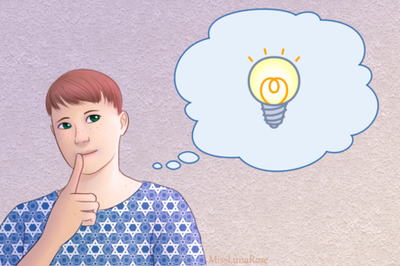
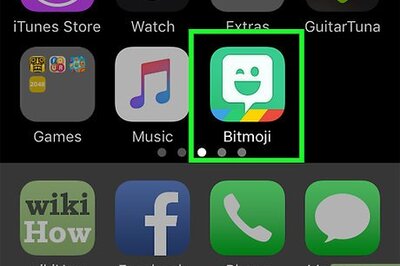
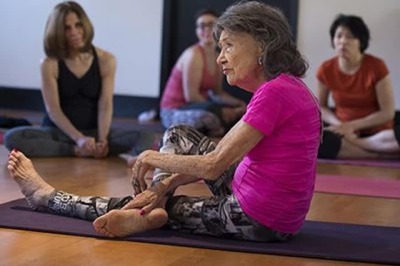
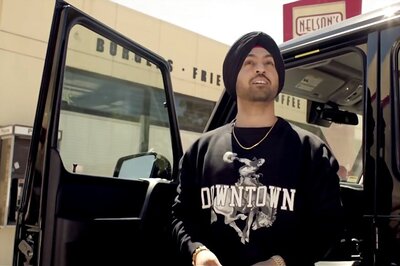

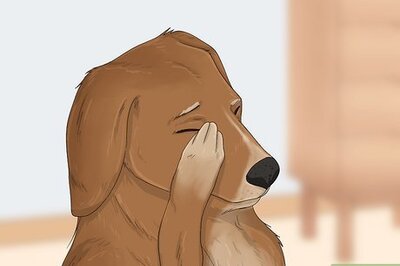
Comments
0 comment